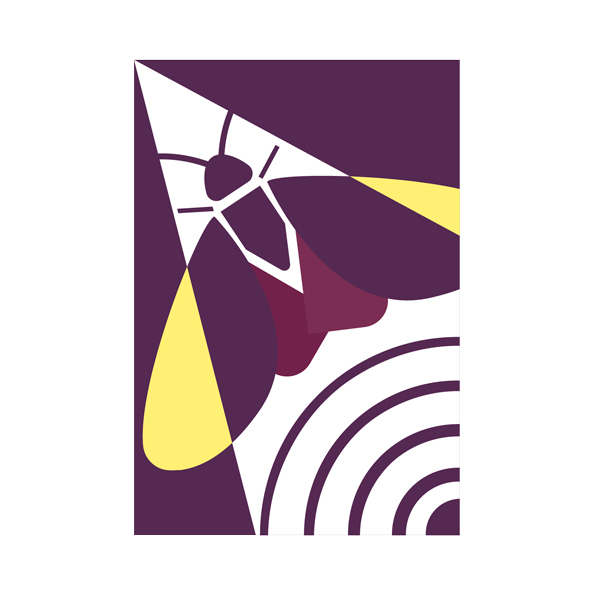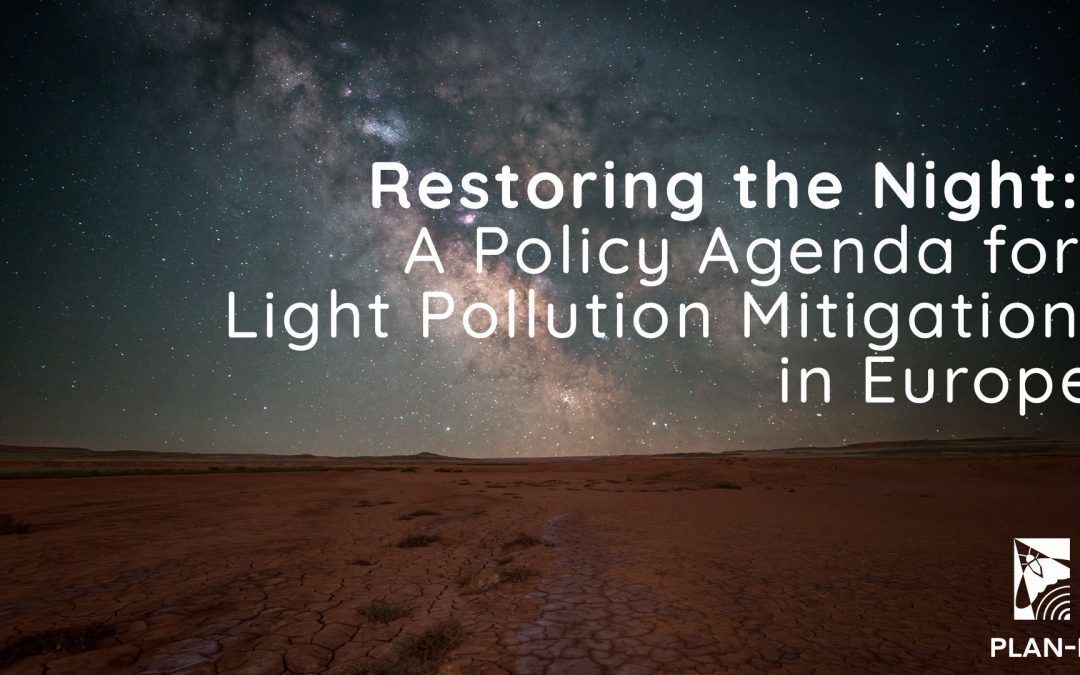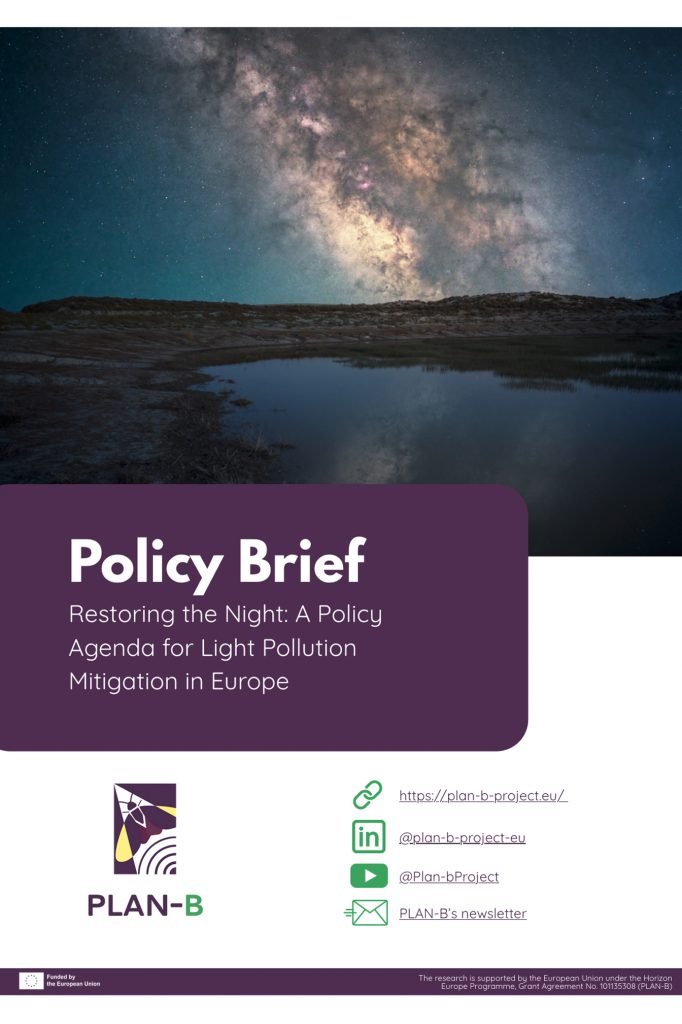A new policy brief, Restoring the Night: A Policy Agenda for Light Pollution Mitigation in Europe, has been officially released by the PLAN-B project, in close collaboration with its sister project AquaPLAN.
This document builds on the momentum of the European Light Pollution Manifesto, drafted at the Light Pollution Meeting in Granada during Spain’s 2023 EU Council Presidency. It provides strategic guidance for the European Union and Member States to take meaningful action on light pollution – an often-overlooked yet rapidly growing environmental issue.
Why We Must Act Now
Natural darkness is vital to life on Earth. Approximately 30% of vertebrates and over 60% of invertebrates are nocturnal, relying on the night for essential processes like foraging, migration, and reproduction.
While Artificial Light at Night (ALAN) has enhanced our lives and provided a number of benefits, such as human comfort, security, well-being and economic activity at night. However, it causes light pollution when humans, other organisms, or the environment are exposed to unwanted or unnecessary lighting. ALAN has to be used and managed within appropriate ecological limits.
In the last two centuries, ALAN has increased thousands of times, with 99% of Europe’s population and biodiversity now living under light-polluted skies.
The Cost of Light Pollution
Light pollution brings significant environmental threats, disrupting ecosystems and causing measurable biodiversity loss. It interferes with vital biological functions like courtship, migration, and mating.
Its global cost is also economic: light pollution contributes to an estimated USD 3.4 trillion in lost ecosystem service value every year.
Despite this, light pollution remains underregulated in Europe. Unlike other forms of pollution, it has yet to be fully integrated into the EU’s environmental protection framework.
The good news? Light pollution is one of the most easily reversible forms of pollution, provided action is taken now, using straightforward, science-based mitigation techniques.
The Policy Brief: A Strategic Framework for Europe
The brief proposes a clear and coherent policy agenda for the European Union and its Member States to address light pollution through:
- Harmonised regulatory approaches
- Recognition of the night as an integral part of nature
- Promotion of evidence-based lighting design and environmental limits
- Ongoing assessment and monitoring of ALAN
It also outlines current regulatory developments at the national and international level, explores public perception, and details available mitigation and monitoring methods.
10 Key Policy Recommendations
- Recognise light pollution as a form of environmental pollution
- Recognise night as an integral part of nature
- Define ecological limits for ALAN use
- Set ambitious targets to reduce light pollution
- Develop a coherent, harmonised regulatory framework
- Require monitoring and environmental impact assessment of light pollution
- Ensure the openness and transparency of ALAN and light pollution data
- Support education and research on ALAN and its impacts, as well as lighting design and planning
- Enhance and initiate awareness-raising campaigns
- Promote international cooperation and alignment
What Comes Next: A Call to Action
The release of the policy brief marks the beginning of a wide communication and dissemination campaign across Europe and beyond.
Our next steps will focus on:
- Raising awareness about the impacts of light pollution
- Promoting stronger, more consistent regulation
- Encouraging harmonised actions across countries and regions
- Engaging governments, institutions, and organisations at all levels
The brief will serve as a framework document to support national and regional policy efforts. To improve accessibility, we are working with partners and our network to translate the brief into multiple languages. An annex will accompany the document, providing an overview of the current state of light pollution in each country.
Join the Light Pollution Policy Campaign
We invite everyone to take part in amplifying this effort. You can support the campaign in several ways:
- Share the policy brief within your networks
- Join country-specific working groups and efforts
- Contact your local, regional or national governments to raise awareness and advocate for change
- Support the campaign by endorsing it as an individual (via our support form) or as an organisation (via a formal letter of support)
Since our launch in April, we have already received support from leading organisations, such as Buglife, the University of Pisa, the Tyrolean Environmental Ombuds Office, and the Royal Astronomical Society, alongside individual supporters from over 40 countries worldwide.
Together, We Can Restore the Night
We believe that with coordinated action, strong policy, and public engagement, we can ensure that artificial light is used responsibly, purposefully, and within ecological limits.
📄 Download the full policy brief (and the Executive Summary)
📥 Endorse the campaign or get involved
🌐 Visit the PLAN-B Project Website to explore our activities
📧 Contact us to get involved in national or international outreach efforts


